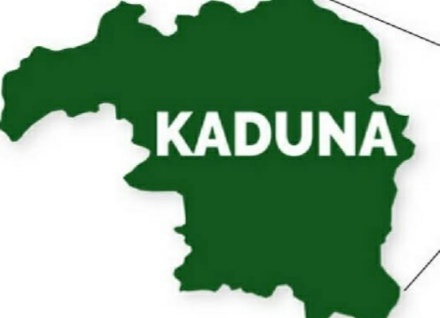In the heart of Northern Nigeria lies Kaduna State, a land steeped in potentials yet shackled by the weight of mismanagement, deceit, and hoping fervently for a leadership capable of mobilising its citizens towards a shared prosperity. Recent revelations have peeled back the layers of obscurity, exposing a state burdened by an astronomical and rising debt profile, second only to that of Lagos.
What’s particularly alarming is the role played by the incumbent resident of Kashim Ibrahim House, who, prior to his accession, spearheaded the approval of a substantial loan from the World Bank during his sojourn at the National Assembly. Now, faced with the repercussions of his actions of a badly planned financing of developmental programmes, he laments the lack of funds for essential projects not withstanding receiving a humongous and monstrous monthly FAAC receipts from Abuja for the benefit of the entire citizens of Kaduna State and is only able to meet basic obligations such as civil servant salaries by the whiskers.
Another perplexing issue is the convoluted narrative of political patronage and betrayal that underpins this financial quagmire.
Inherited Debts
Ranking as the second highest in Nigeria’s debt hierarchy, Mr Governor said he inherited significant debts from the previous administration led by Malam Nasir, who was his benefactor, bosom friend, “oga at the top” etc., which comprises $587million (foreign, equivalent to N705bn at N1200/$ as at 3/4/2024), N85bn(domestic) and N115bn (contractual liabilities).
- American school to refund $760k of ex-Kogi gov’s children fees to EFCC
- Yahaya Bello: Judge summons EFCC Boss for alleged contempt of court
A most pertinent question to ask here is: do the above debts include all or some or none of the following?
- Outstanding payments to ad hoc, contract, NYSC or other ancillary staff?
- Outstanding salaries for either teachers or health workers or core civil service staff?
iii. Are there outstanding Accrued Rights Benefit in the Contributory Pension Scheme of pensioners and families of deceased staff?
The service compact agreement promised by Mr Governor
His Sustain Manifesto 2023, ‘meaning continuing from somewhere’, includes a 7-point agenda focusing on the development of the state as follows: Safety and Security, Upgrade of Infrastructure, Strengthening Institutions, Trade and Investment, Agriculture, Investment in Human Capital, and Nurturing Citizen Engagement.
Wait a second,
- How much is the implementation of the 7-point agenda supposed to cost and in how many years?
- Will there be implementation of the 7-point agenda or ‘sustenance’ of ongoing projects as the massive FAAC allocation gets eaten up?
- What about the welfare of citizens?
Inability to answer these three questions portrays Nigeria’s democracy as a farce!
The circus and the clowns
Based on the Debt Sustainability Framework for Low-Income Countries (LIC DSF) used by the World Bank and the IMF, Debt Sustainability is a country’s/state’s ability to manage its debt without requiring debt relief or accumulating arrears or default on its obligations.
Meanwhile Debt Sustainability Ratio (DSR) compares the country’s/state’s debt levels against its ability to repay, considering its income, economic growth and other relevant financial indicators.
A Debt Sustainability Analysis (DSA) is a structured examination of a country’s debt-carrying capacity (strong, medium or weak) over 10 years, vulnerability to economic and policy shocks and based on indicators such as Debt-to-GDP Ratio, Debt Service-to-Revenue Ratio, Debt Service-to-Exports Ratio, Primary Fiscal Balance, Net Present Value (NPV) of Debt-to- Exports Ratio, External Debt-to-Exports Ratio and Public Sector Borrowing Needs.
Once the indicative thresholds show a positive sign, government at all levels feel they have the capacity to secure debts but alas, that’s wrong.
These indicators are meant to help analysts determine the risk of debt distress and guide borrowing decisions to maintain debt at sustainable levels but not to accumulate debts simply because ‘government is continuum’.
A tale of political intrigues
Distressingly, in a Machiavellian manoeuvre, mallam anointed his senator to succeed him from the ranks of ‘his own”, only for citizens to witness the same protege spearheading a relentless cry of lack of funds for essential projects and a struggle to meet basic obligations.
Now, with coffers depleted and faced with the repercussions of his actions, the cry of fiscal incapacity reverberates through the corridors of power, leaving citizens welfare and development projects in limbo.
What’s particularly abhorrent is the intricate web of political manoeuvres, self-serving actions that have contributed to this fiscal debacle, and has highlighted tensions and breakdown in the relationship between the anointer and the anointed.
Scratching the dirt
Compounding the issue is the close-knit network of political affiliations that seem more concerned with self-preservation than public service.
The governor’s ascent to power was facilitated by his predecessor, and his administration comprises key individuals and members of the past administration, who we are told will help with institutional memory, policy formulation and implementation from the same political circle, raising questions about their complicity in the state’s financial mismanagement.
But the rot runs deeper still. Nepotism rears its head as the son of the former governor, once his legislative aide, now brazenly denounces his former mentor as clueless.
Economic Strains and Public Welfare
The agencies entrusted with safeguarding public welfare and provision of services have been perverted into instruments of extortion. Examples:
- The state’s road traffic and enforcement agency, originally envisioned as a regulatory body, has devolved into a cash-generating enterprise, preying on hapless citizens with exorbitant fees, charges and fines that burden the already strained finances of the citizens.
- Similarly, the lands registry, due to bureaucratic inefficiencies, has led to a perception of governance akin to an advance fee fraud scheme, transforming public institutions into veritable black holes of inefficiency and apathy.
Public Servants or public burden
According to the Kaduna State Bureau of Statistics (KSBS) website, the projected population of the state is 10.4m as at 2023. Meanwhile, in an interview granted by mallam sometimes around May 2016, there are less than 100,000 persons employed in the civil service.
Averagely, the state’s monthly FAAC receipt is N10bn and about N7bn gets consumed for debts servicing and repayment, leaving a huge N3bn for essential expenses. But alas, its a struggle to honour its monthly salary obligation of N5.2bn to less than 100,000 of its workforces, with the rest of 10 million citizens left with nothing to cater for their welfare. This is an absurdity!
From the above, it’s a bitter irony that those entrusted to serve the state’s 10 million citizens have seemingly turned their backs on their mandate, prioritizing personal comfort over public welfare by being paid humongous performance bonuses (though recently cut off, we are told) thus exacerbating the financial strain on the populace and the state.
Just like Annual Schools Census, it will be apt for KSBS to conduct an Annual Civil Servants Census.
A future in limbo
According to Statisense, the Kaduna State 2024 budget for education is N115.42b, placing it fifth in the list of states with highest budgetary allocation for education.
The Kaduna State General Household Survey conducted by KSBS in 2020 shows that 31.1% of children within the primary school age are out of school. That is 535,353 while 31.9% of children within the junior secondary school age are out of school, that is 233,386 children. That is a total of 768,739 at the basic level of education (Basic 1 to 9).
Exorbitant school fees in the state’s tertiary institutions is another palaver. Lest we forget, over 95% of those in government got their tertiary education on a platter of gold; free of charges or stress.
The plight of the citizens is further exacerbated by the denial of educational opportunities, as scholarships are denied and withheld while access to study loans remains elusive from the Kaduna State Scholarship and Loans Board. The requirements are short of being called Satanic.
Amidst a staggering number of out-of-school children and absence of funding, it is alarming to notice the government’s misplaced priorities. Instead of investing in education and social welfare, it ended up giving performance bonus to its civil servants.
Those eating from the sweat of faith
The much-vaunted promise of the Muslim-Muslim ticket, which ushered in successive administrations, has proven to be a hollow echo, devoid of substance or salvation. Instead, it perpetuates a cycle of inept governance and citizen deprivation and serves as a stark reminder of the myopic vision and self-serving agendas that have hijacked governance in Kaduna State.
Furthermore, the strategy has done little to address the underlying issues plaguing the state and thus has failed to foster inclusive development.
Beware of the Ides of March
A significant portion of the state’s current cabinet, special advisers, and assistants etc, are recycled from the previous administration, suggesting a continuity of policies that have assisted to run the state aground.
This continuity thus raises questions about possibility of existence of moles, collective responsibility, and the pursuit of the common good.
The path forward
As custodians of our collective destiny, this awareness becomes imperative as we hope it will effect meaningful change, therefore:
- Mr Governor, the time to review certain laws and process work flow is now as they are fraught.
- On the debt debacle, there is a way out only if the will is there.
iii. For those outside Kaduna, this is a blueprint, equate Kaduna with your state and it will fit perfectly.
Alhaji Adamu Rabiu writes from Kaduna.

 Join Daily Trust WhatsApp Community For Quick Access To News and Happenings Around You.
Join Daily Trust WhatsApp Community For Quick Access To News and Happenings Around You.


